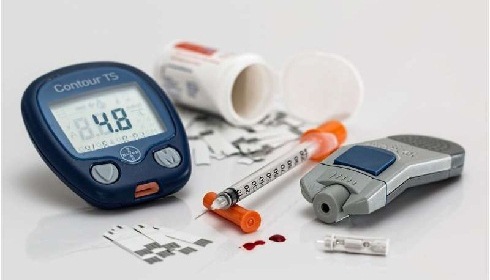
Age, not weight needs to be focussed upon for diabetes screening, say researchers
Mass screenings for the detection of diabetes need to focus on age and not body weight, researchers of a new observational study, published in the American Journal of Preventive Medicine on March 24, 2023, led by researchers from Northwestern University, said.
The study found that screening all adults aged 35 to 70 years, regardless of weight, identifies most adults with prediabetes and diabetes in the United States.
The researchers discovered that this method might improve the ability to identify prediabetes and diabetes across all racial and ethnic groups.
Explaining the findings, the lead investigator, physician Dr Matthew O’Brien, an associate professor of medicine at Northwestern University Feinberg School of Medicine, said, “All major racial and ethnic minority groups develop diabetes at lower weights than white adults, and it is most pronounced for Asian Americans’,”
“It might sound counterintuitive because we think of being overweight or obese as the primary cause of diabetes,” he added.
As per the recommendation of the U.S. Preventive Services Task Force (USPSTF), screening for diabetes should be undertaken only by individuals between 35 to 70 years who are overweight or obese.
Diabetes detection in adults from racial and ethnic minority groups is frequently delayed when compared to white adults, according to researchers. Delayed diagnosis means the disease is more difficult to control, and such individuals are more likely to develop diabetes complications in the heart, eyes, and kidneys, as well as a higher risk of dying.
”Diabetes is a condition in which unacceptable racial and ethnic disparities persist,” O’Brien said.
“That is why we need a screening approach that maximises equity. If we can find everyone earlier, it helps us reduce these disparities and the bad outcomes that follow,” he stated.
The researchers of the study stated that as Asian American adults frequently acquire diabetes and prediabetes even at a normal weight, this racial group is most likely to be overlooked in the recent 2021 guidelines for prediabetes and diabetes screening.
The study, which is the study to examine the health-equity implications of the current screening recommendations, estimated that about six million Asian Americans have prediabetes or undiagnosed diabetes.
“It is imperative that we identify a screening approach that is equitable across the entire United States’ population,” O’Brien said.
“Our findings illustrate that screening all adults aged 35 to 70 years, regardless of weight or body mass index, performs equitably across all racial and ethnic groups,” he added.